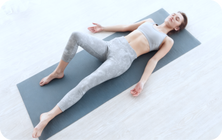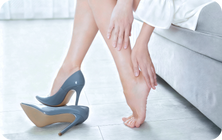Arthritis is a condition that affects the joints, causing inflammation, pain, stiffness, and deformation. Arthritis can occur at any age, but it is most common among older adults. It is a leading cause of disability worldwide, limiting mobility and quality of life.
Pathology of Joint Pain
Arthritis comes in many forms, with different causes and symptoms. Osteoarthritis and rheumatoid arthritis are the most common types.
Osteoarthritis results from wear and tear over time, leading to cartilage damage, bone spurs, and inflammation. Rheumatoid arthritis, on the other hand, is an autoimmune disorder where the body's immune system attacks the joint lining, leading to inflammation and pain.
Areas of the Body that Suffer from Joint Pain
The joints most commonly affected by arthritis include the hands, wrists, hips, knees, and spine. However, any joint in the body can be affected, leading to pain, stiffness, and limitations in movement.
Symptoms to Look Out for
Symptoms of arthritis can vary from person to person, but common signs include joint pain, stiffness, swelling, and redness. The affected joint may also feel warm to the touch, and you may experience a cracking or popping sensation when moving it. Chronic arthritis can cause joint deformities, nerve damage, and muscle weakness.
Coping Strategies for Relief
While there is no cure for arthritis, there are many ways to manage the symptoms and improve quality of life.
- Exercise: Regular physical activity helps to strengthen muscles, improve range of motion, and reduce joint inflammation. Low-impact exercises like walking, swimming, or yoga are ideal for reducing joint stress while keeping you mobile.
- Heat and Cold Therapy: Applying heat or cold to affected joints can help to reduce inflammation and alleviate pain. Heat therapy can help to increase blood flow and relieve stiffness, while cold therapy helps reduce swelling and numbs pain.
- Medications: Over-the-counter pain relievers like acetaminophen, ibuprofen, and naproxen can help relieve mild arthritis pain. Prescription medications like nonsteroidal anti-inflammatory drugs (NSAIDs) and corticosteroids can reduce inflammation and relieve moderate to severe pain.
- Assistive Devices: Using assistive devices like canes, walkers, or braces can help to support joints, reduce pain, and improve your quality of life.
- Weight Management: Excess weight puts extra stress on your joints, leading to increased pain and inflammation. Maintaining a healthy weight through a balanced diet and regular exercise can help reduce joint stress and improve overall health.
Arthritis is a common condition that can limit your mobility, independence, and quality of life. However, by understanding the pathology of arthritis, identifying the areas of the body that suffer from joint pain, recognizing the symptoms to look out for, and adopting effective coping strategies, you can manage the pain and improve your quality of life. Remember to consult a doctor or healthcare professional before starting any new treatment plan.

















